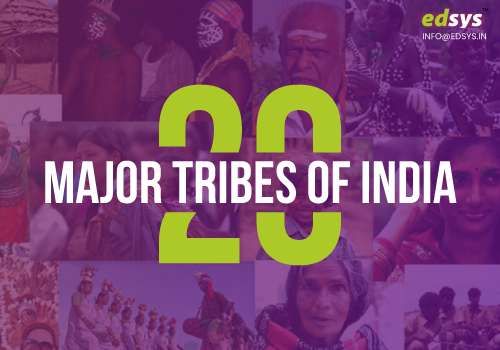Tribes in India refer to a section of the population who are indigenous to the state or region and who live away from the main society. The 20 major tribes of India have been classified based on their geographical isolation, characteristics, features, culture and backwardness. The tribes in India are called by the collective term ‘Adivasis.’
Get Best Free GK Apps 2023 (Check it Now)
The maximum population of tribes in India is in Orissa, Rajasthan, Bengal, Madhya Pradesh, Chattisgarh, Gujarat, Maharashtra, Andhra Pradesh and Karnataka. The largest number of tribes in India is in Madhya Pradesh followed by Bihar. Delhi, Pondicherry, Haryana, Chandigarh and Punjab are states where there are no tribes.
We give below an overview of the 20 major tribes of India.
1) Bhils Tribe

The Bhils are a tribe found mostly in the mountain ranges of Udaipur and in some districts of Rajasthan.
The Bhils are the largest tribes in India.
They speak the Bhili language. Their celebrations are the Ghoomar dance, Than Gair-a dance drama and the Baneshwar Fair.
2. Gonds Tribe
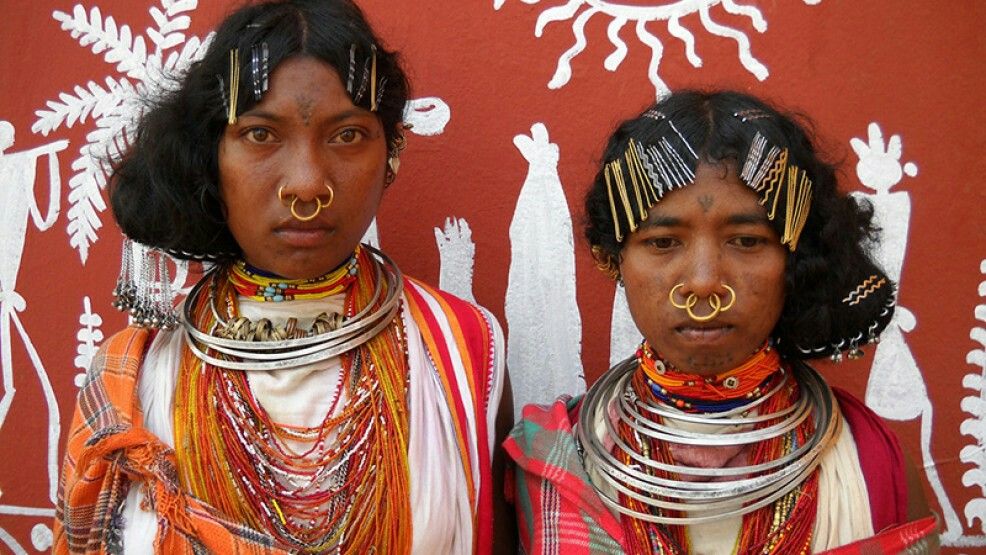
Found in the Chhindwara district of Madhya Pradesh and in parts of Maharashtra, Orissa and Andhra Pradesh, the Gonds are the second biggest tribe in India.
They are known for their valor and speak many Indian languages including the Dravidian Gondi language.
They have houses of mud walls and thatched roofs in the Gondi forests.
Agriculture is their main occupation. Keslapur Jathra and Madai are their festivals.
3. Munda Tribe

This tribe is found in Jharkhand and parts of Chattisgarh, Bihar, Odisha and West Bengal.
Their life is simple and basic. They speak the Mundari language. The Mundas were hunters in the past but now are laborers in farms.
They follow the Sarna religion owing allegiance to a God called Singbonga. Their language is Killi and Nupur dance is the main entertainment.
The Munda tribes celebrate the Mage, Karam, Sarhaul and Phagu festivals.
4.Santhal Tribes
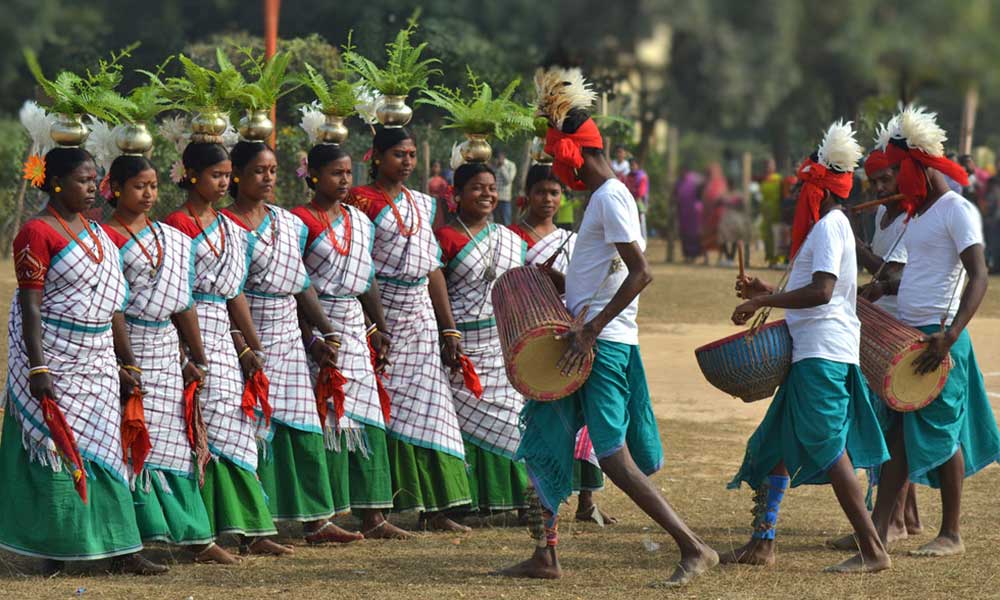
The Santhal tribes are a major tribe of West Bengal. They are also seen in parts of Bihar, Odisha, and Assam and are the largest tribe in Jharkhand.
They depend on agriculture and livestock for their living and are great hunters. In addition to traditional festivals like Karam and Sahrai, Santhali dance and music is a major attraction.
5.Toto Tribe
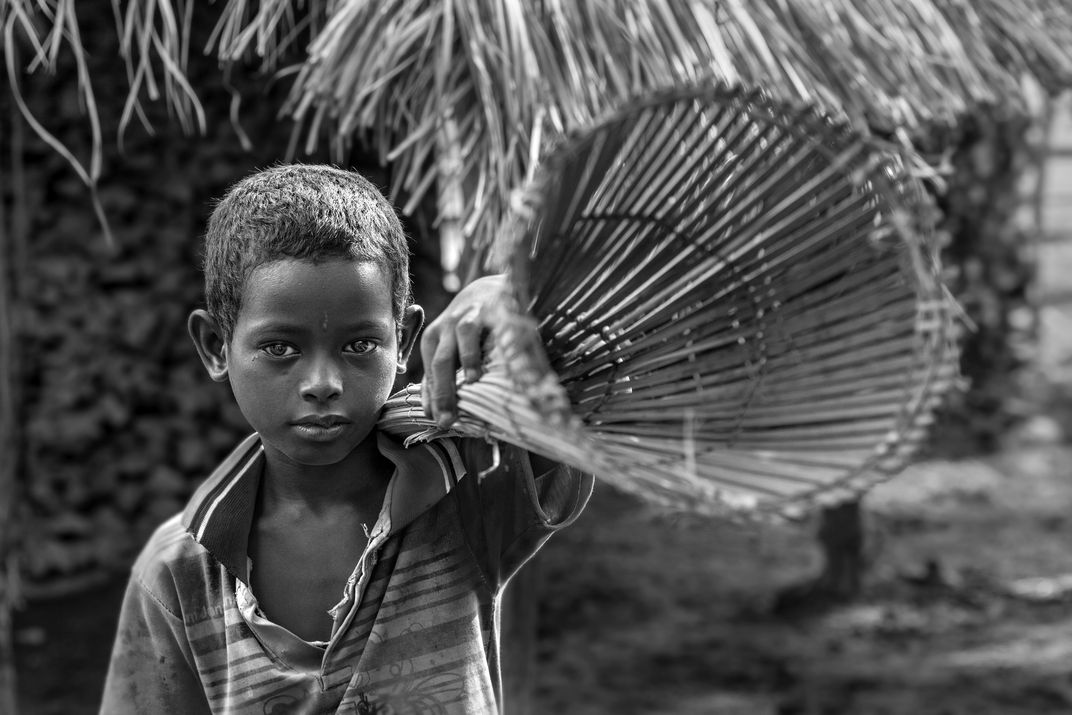
Totapara village in Alipurdoar district of West Bengal is home to the Toto tribe.
Their language has no script and is influenced by Nepali and Bengali.
They trade vegetables and fruits to maintain their simple life. They believe in God Ishpa and Goddess Cheima, though they proclaim to be Hindus.
6. Bodo Tribe
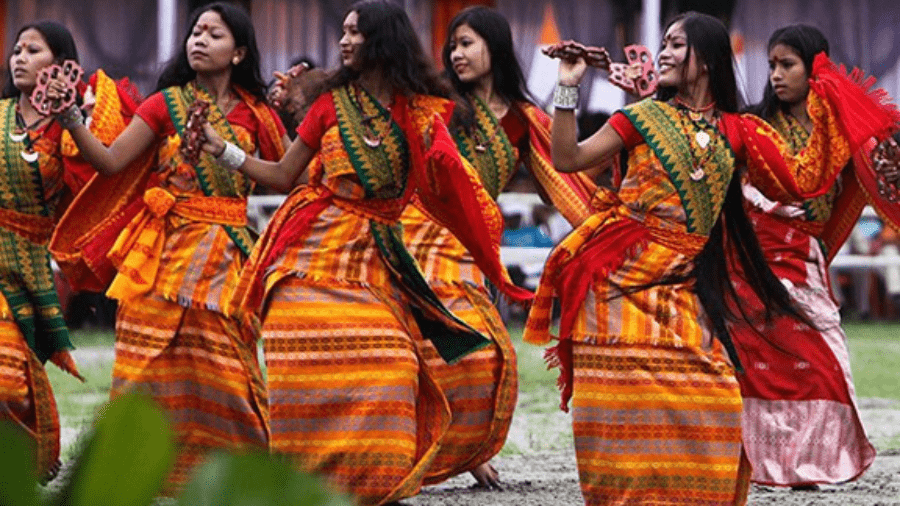
The Bodo tribe is found in Assam and parts of West Bengal and Nagaland.
They are believed to be the early indigenous settlers of Assam. They speak a Tibetan-Burmese language, the Bodo.
The weaving of handloom products is an intrinsic part of their culture.
They celebrate the Baishagu festival in spring, dedicated to Lord Shiva.
7.Angami Tribe
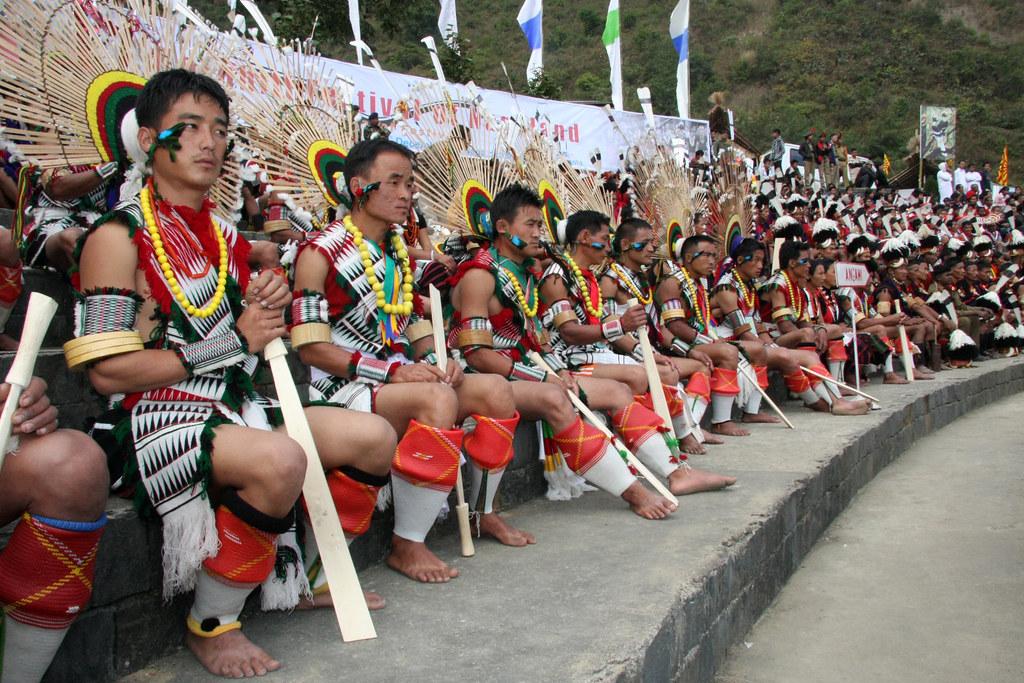
The Angami Nagas is one of the major tribes found in the district of Kohima in Nagaland.
The men dress in white Mhoushu and black Lohe. The women wear Mechala and ornaments of beads, mask pendants, bracelets, etc.
The tribe is best known for the famed Hornbill Festival which attracts crowds from various parts of the world.
Their intricate art and woodwork and work in bamboo and cane are beautiful. They speak different dialects like Gnamei, Ngami, Tsoghami.
8.Bhutia Tribe
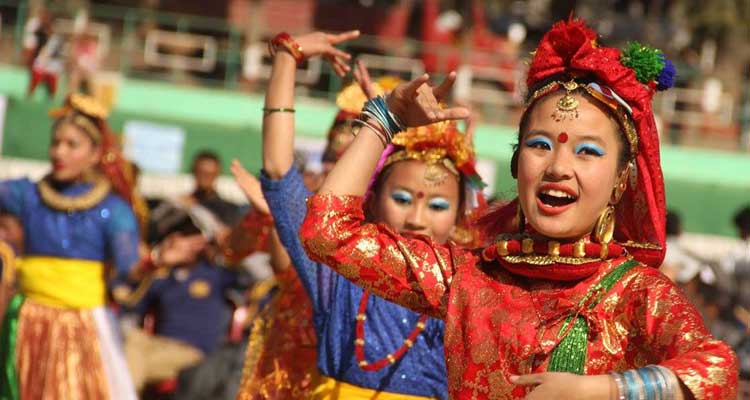
The Bhutias are mainly found in Sikkim and parts of West Bengal and Tripura.
They are of Tibetan ancestry and speak Lhopo or Sikkimese language.
They are known for their art and cuisine. The steamed meat dumplings called momos are their staple food.
Thukpa, noodles in a broth, is another of their dishes. Losar and Loosong are the festivals celebrated.
9. Khasi Tribe
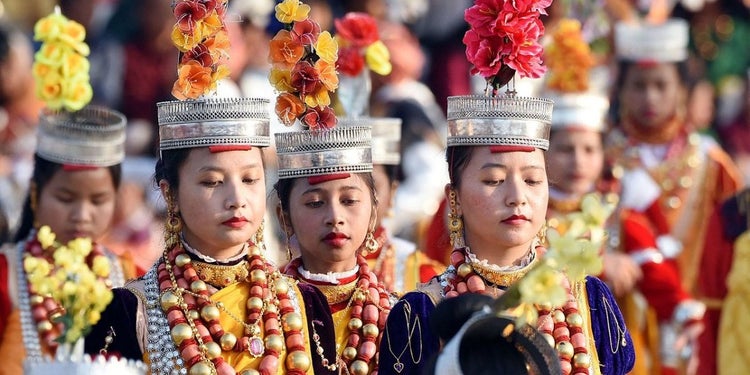
This tribe is mainly spotted on the Khasi Hills of Meghalaya and in parts of Assam, Manipur, Arunachal Pradesh, and West Bengal.
The tribe plays plenty of music and a wide range of musical instruments like drums, guitars, flutes, cymbals, etc.
Their major festival, the Nongkrem festival is five days long when the women wear a dress called Jainsem and the men a Jymphong.
10. Garo Tribe
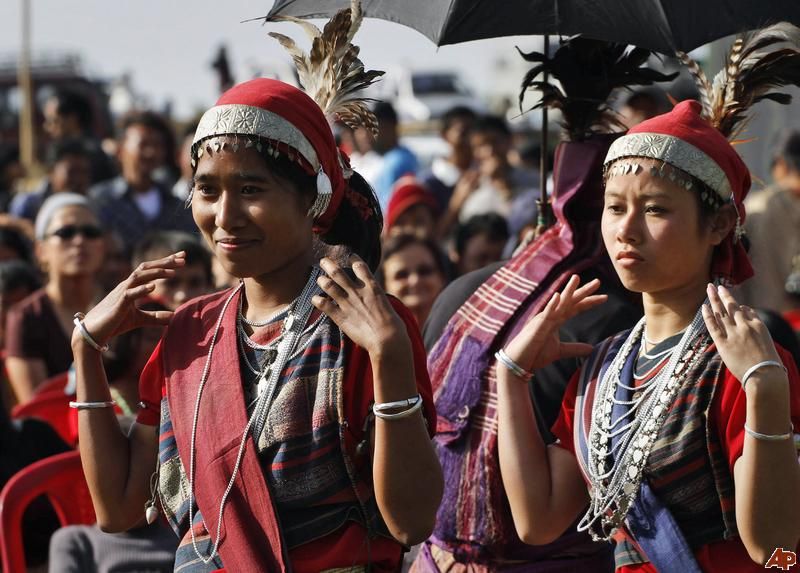
Garo tribes are mainly found in the hills of Meghalaya and parts of Assam, Nagaland and West Bengal.
The tribe is one of the few matrilineal societies in the world. Garo architecture is quite unique. Nokmong, Nokpante, Jamadaal and Jamsireng are some of them.
The tribal women wear a variety of traditional ornaments. The men wear their traditional dress with a turban with feathers stuck in them. The festival of Wangala is their celebration.
11. Nyishi Tribe
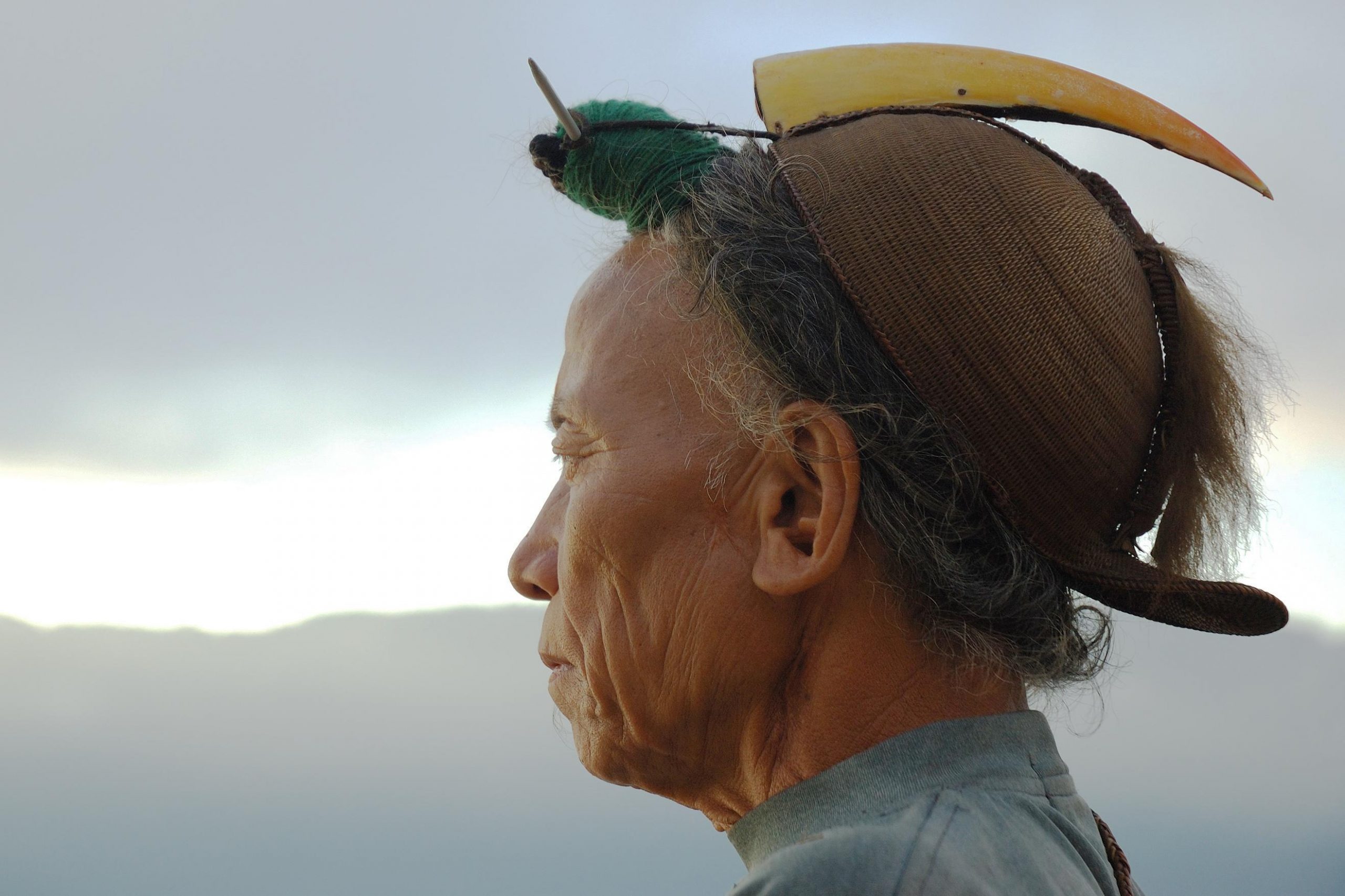
This tribe inhabits the mountains of Arunachal Pradesh with the majority of them from districts of Kurung Kumey, Papum Pare, Upper, and Lower Subansiri.
Nishi is the language spoken by them. A good majority of them have converted to Christianity.
The rest still follow a religion involving spirits associated with nature. The Nyokum festival, celebrated in February every year, is dedicated to the goddess Nyokum.
12. Warli Tribe
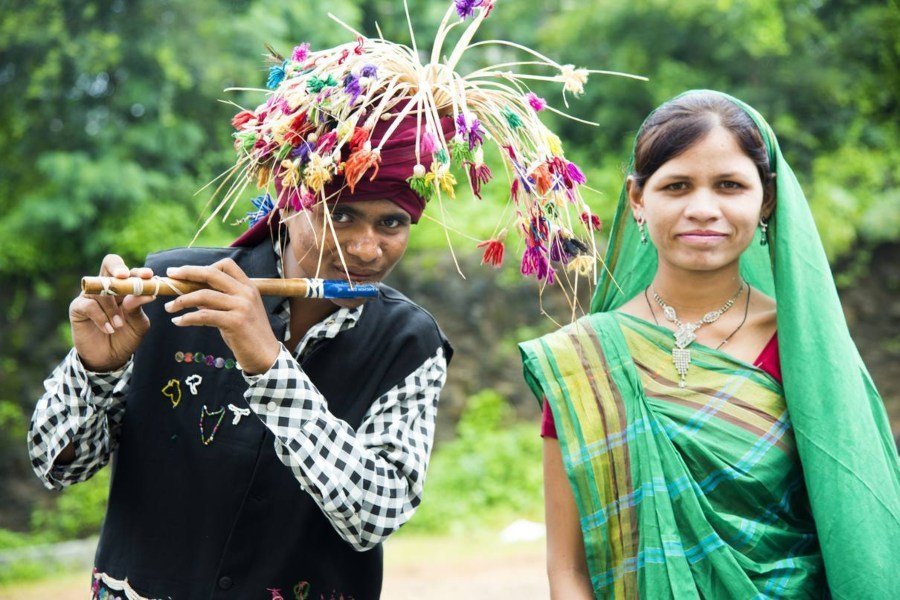
The tribe is found in Maharashtra and Gujarat.
This tribe is well known for the Warli Art, where a mixture of cow dung and earth, rice paste, bamboo stick, red ochre are used to create art, paintings and murals.
They conduct the Tarpa dance during the harvest season and the Warli Folk Art Dancing People Festival during March of every year.
13. Chenchu Tribe
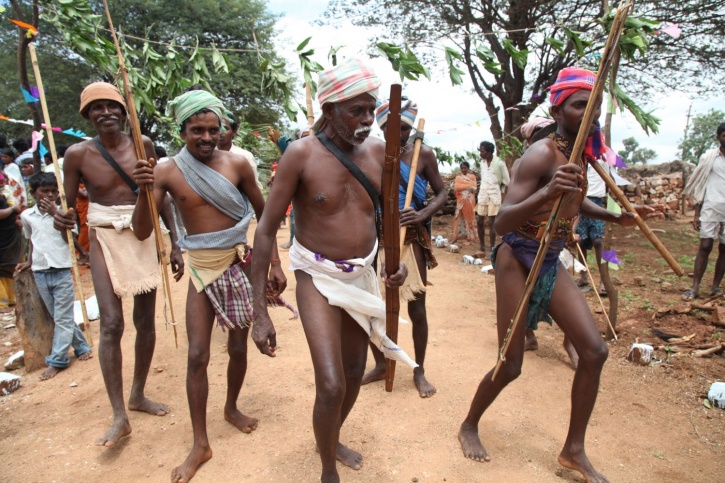
This tribe is indigenous to Andhra Pradesh and inhabits the forests of Nallamala Hills.
They are also present in the districts of Kurnool, Nalgonda, Guntur.
They hunt and trade in jungle products like honey, roots, gums, fruits, and tubers. They speak a language with Telugu accent and are a very ritualistic lot.
14. Siddis Tribe
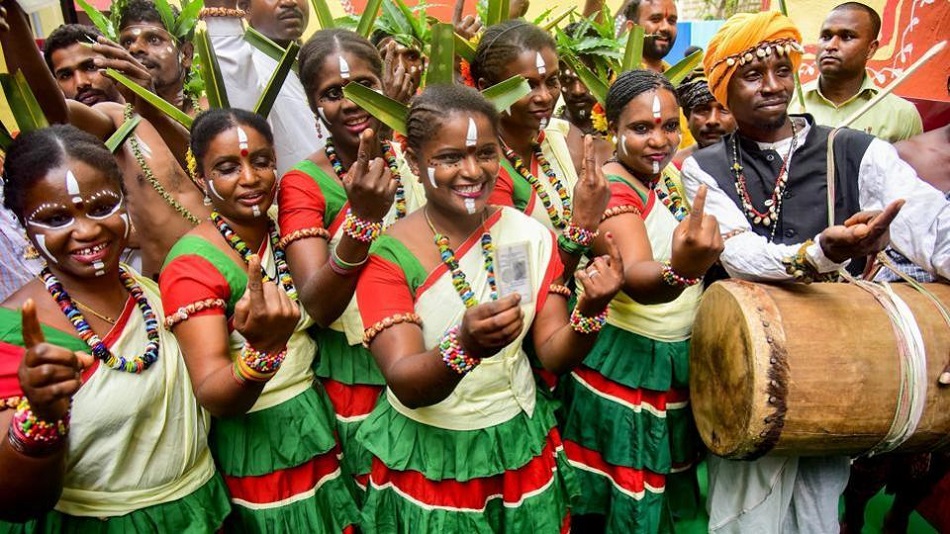
This tribe of Karnataka is believed to have descended from the Bantu people of Southeast Africa.
History says that the people were brought in as slaves by the Portuguese. They are found in various parts of Karnataka. The majority of them are Christians while others follow Hinduism and Islamism. They are fond of ritual practices, dance and music.
15.Soliga Tribe
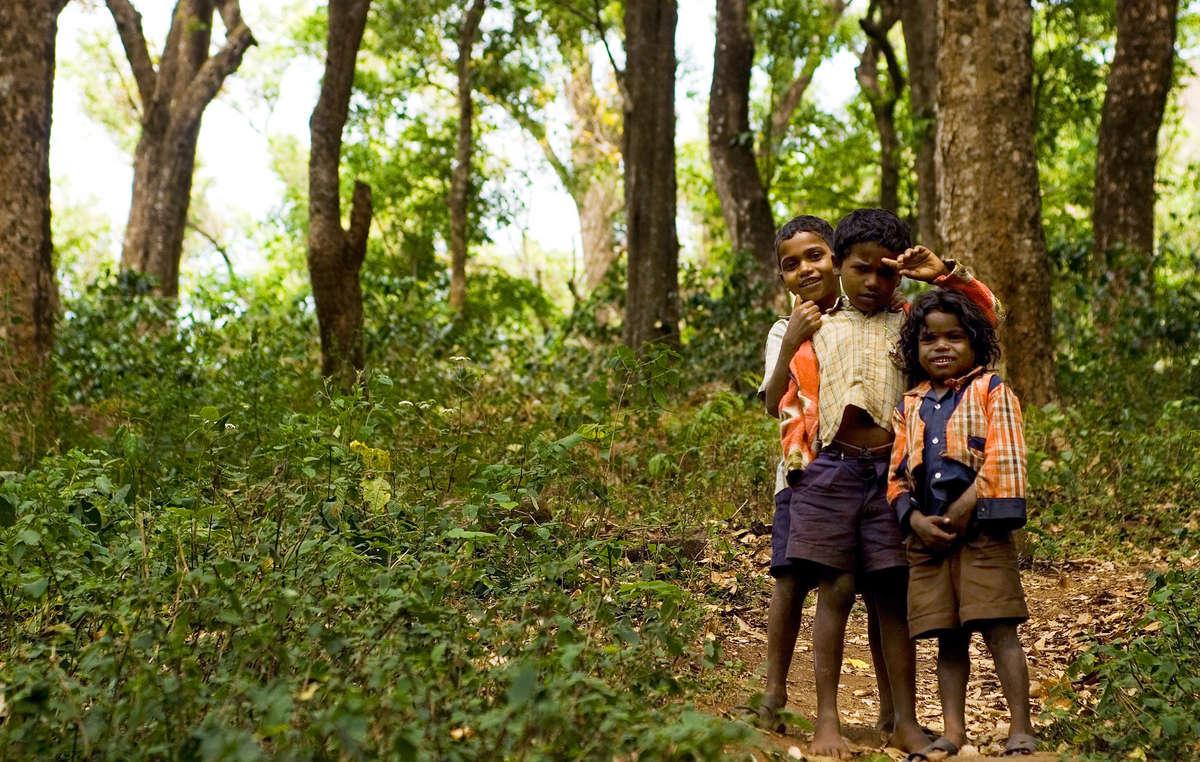
The Soligas inhabit the dense forest areas of Karnataka and Tamil Nadu.
This indigenous group is comprised of five different groups namely Male Soliga, Kadu, Burude, Pujari, Urali Soliga.
The Soligas speak the Sholaga language, which has Kannada and Tamil influence.
Their main source of livelihood is the sale of Raggi, honey, wild turmeric, algae, bamboo, etc harvested by them.
16. Kodava Tribe
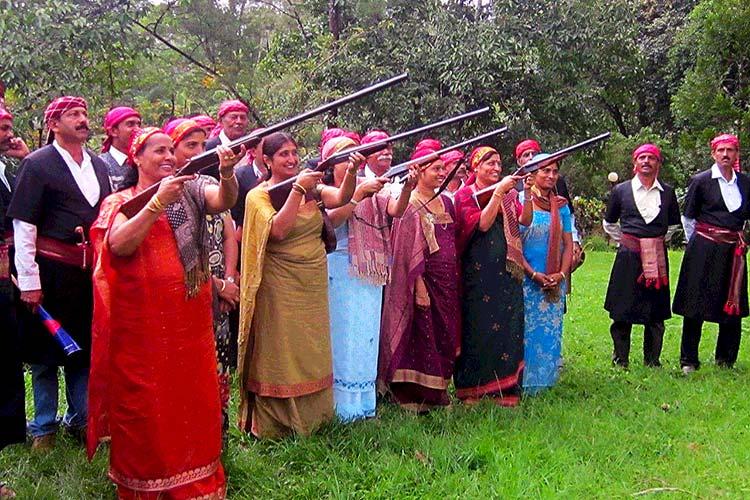
This tribe from Mysore, Karnataka is concentrated in Coorg. Well known for their bravery, the tribe is a patrilineal tribe from Kodagu or Coorg.
They speak the Kodava language.
They are basically agriculturists. The people of the tribe, both men and women, are very passionate about hockey.
In addition to the traditional festivals of Kailpodhu, Puttari and Kaveri Sankraman, they celebrate the Kodava Hockey festival every year.
17. Toda Tribe
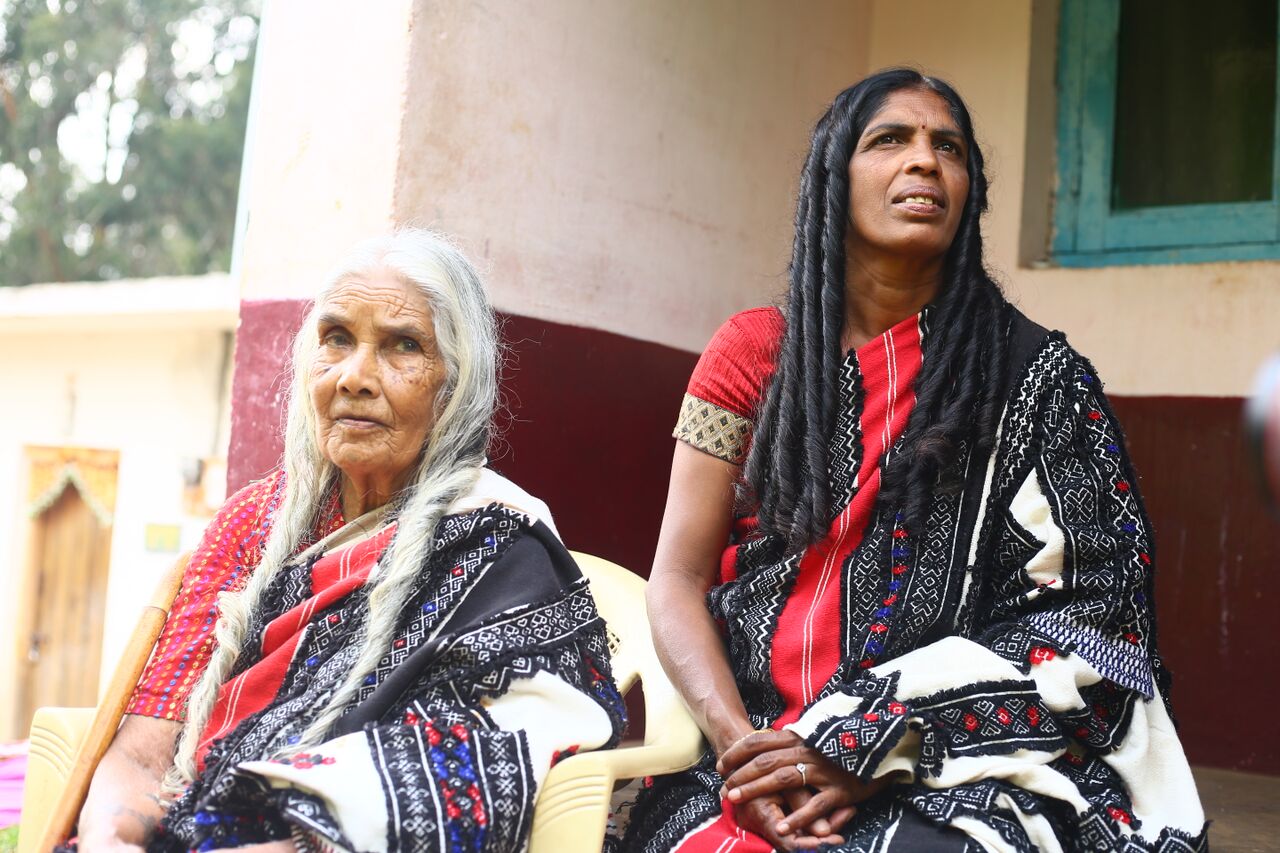
The Todas are found in parts of the Nilgiris mountain in Tamil Nadu.
Their livelihood depends on cattle farming and dairy. Their skill in architecture is reflected in the oval and tent-shaped bamboo houses with thatched roofs.
Toda embroidery work, Pukhoor, is well acclaimed. Their most important festival is Modhweth.
18. Irular Tribe
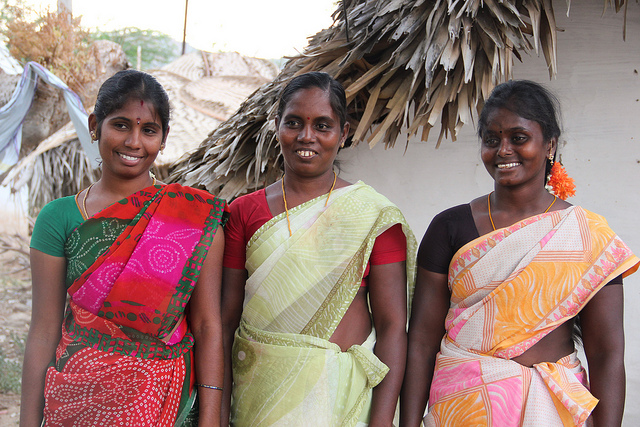
The tribe inhabits areas of the Nilgiri mountain in Tamil Nadu and Kerala.
They are the second-largest tribe in Kerala and are found mostly in the Palakkad region.
They are mainly farmers and dependent on the production of paddy, dhal, Raggi, chilies, turmeric, and plantains.
They are ritualistic, believe in their own Gods and are known for their skills in black magic.
19. Kurumba Tribe
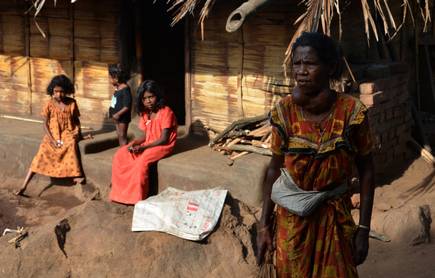
This is a major tribe found in parts of Kerala and Tamil Nadu. They are one of the earliest settlers of the Western Ghats.
They lead a simplistic lifestyle depending on agriculture and gathering of honey and wax.
They are adept at formulating traditional herbal medicines. They are well known in the region for their skills in witchcraft and magic.
20. Great Andamanese Tribe
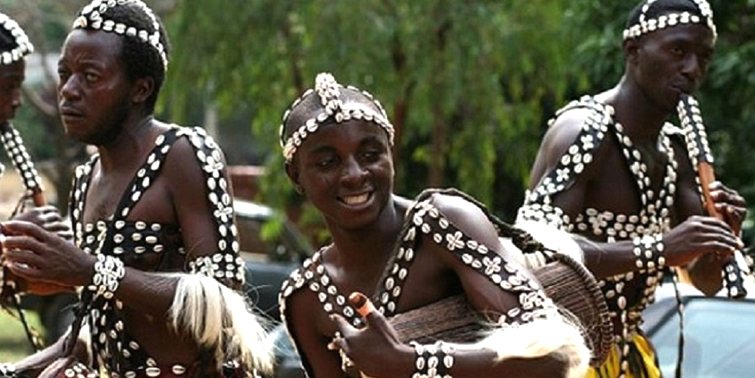
This tribe includes the Jarawa, Jangil, Onge, and Sentinelese on the islands of Andaman and Nicobar.
They are known to be the first inhabitants of the island. They speak the Bo, Khora, Jeru and Sare languages.
They keep to themselves and refrain from interacting with outsiders.
India has about 645 tribes in total. The Government of India is keen on the development of these tribes and incorporating their contributions to mainstream society.
Ministry of Tribal Affairs plans and co-ordinates the development programs for the tribes
